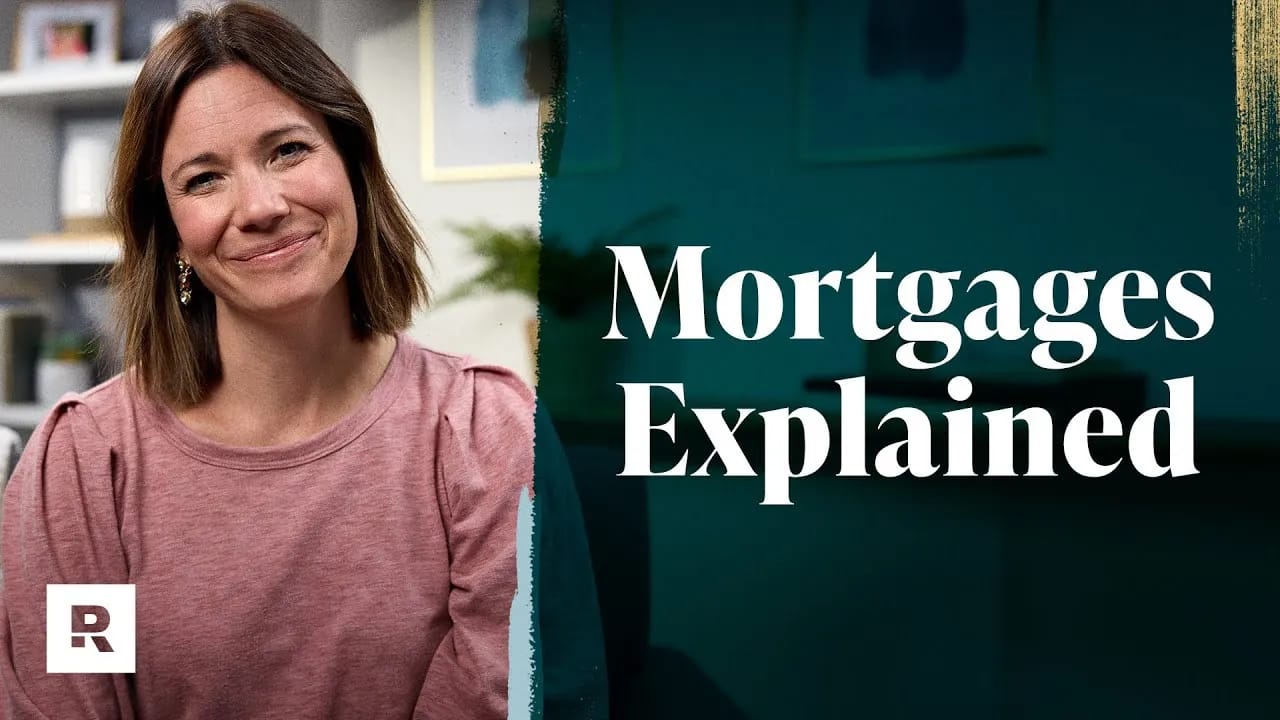How a Mortgage Actually Works
The world of real estate can feel overwhelming, especially if you’re new to it. With so many terms and concepts to grasp, buying a home might seem like a daunting task. But don’t worry—we’re here to break it down for you. Whether you’re a first-time homebuyer or just looking to refresh your knowledge, this guide will explain how a mortgage actually works, from principal and interest to PMI and beyond. Let’s dive in!
What Is a Mortgage?
A mortgage is a type of loan specifically used to purchase a home. It’s one of the few types of debt that financial experts like Dave Ramsey consider acceptable because it’s tied to an asset—your home. Essentially, a mortgage allows you to borrow money from a lender to buy a house, and you repay the loan over time, typically 15 to 30 years. Understanding how a mortgage actually works is the first step to making informed decisions about homeownership.
How Much of Your Income Should Go Toward Housing?
When buying a home, it’s crucial to ensure your mortgage payments fit comfortably within your budget. A good rule of thumb is the 25% rule: no more than 25% of your take-home pay should go toward housing costs, including your mortgage, property taxes, insurance, and HOA fees. This ensures you have enough left over for other expenses, savings, and debt payments. Knowing how a mortgage actually works helps you avoid overextending yourself financially.
What Type of Mortgage Does Ramsey Recommend?
Dave Ramsey recommends a 15-year fixed-rate mortgage. Here’s why:
- Fixed-Rate: Your interest rate stays the same for the life of the loan, providing stability and predictability.
- 15-Year Term: While the monthly payments are higher than a 30-year mortgage, you’ll pay off your loan faster and save significantly on interest.
For example, on a $280,000 loan at 5.2% interest:
- A 30-year mortgage would cost you $273,500 in interest over the life of the loan.
- A 15-year mortgage would cost only **123,800ininterest∗∗—savingyounearly123,800ininterest∗∗—savingyounearly150,000!
Understanding how a mortgage actually works can help you choose the right loan type for your financial goals.
When Are You Ready to Buy a Home?
Buying a home is a major financial decision, so it’s important to be prepared. Here’s how to know if you’re ready:
- You’re Debt-Free: Pay off all consumer debt (credit cards, car loans, etc.) before taking on a mortgage.
- You Have an Emergency Fund: Save 3–6 months’ worth of expenses in case of unexpected costs.
- You’ve Saved for a Down Payment: Aim for at least 5%–20% of the home’s purchase price to avoid private mortgage insurance (PMI).
Knowing how a mortgage actually works ensures you’re financially prepared for homeownership.
What Costs Are Included in a Mortgage Payment?
Your monthly mortgage payment typically includes:
- Principal: The amount you borrowed to buy the home.
- Interest: The cost of borrowing money, expressed as a percentage.
- Property Taxes: Taxes assessed on your home’s value, often paid through an escrow account.
- Homeowners Insurance: Protects your home against damage or loss, usually bundled with your mortgage payment.
- Private Mortgage Insurance (PMI): Required if your down payment is less than 20% of the home’s value.
Understanding how a mortgage actually works helps you budget for these costs effectively.
What Costs Are NOT Included in a Mortgage Payment?
While your mortgage covers the basics, there are additional expenses to budget for:
- HOA Fees: If your home is part of a homeowners association.
- Utilities: Water, gas, electricity, internet, and cable.
- Maintenance Costs: Repairs, landscaping, and other upkeep.
Knowing how a mortgage actually works ensures you’re prepared for all the costs of homeownership.
Refinancing Your Mortgage
If interest rates drop, you may want to consider refinancing your mortgage. This means replacing your current loan with a new one at a lower rate, which can reduce your monthly payments or shorten the loan term. Just keep in mind that refinancing comes with closing costs, so it’s important to weigh the pros and cons. Understanding how a mortgage actually works can help you decide if refinancing is right for you.
Tips for Paying Off Your Mortgage Early
Want to own your home outright sooner? Here are a few strategies:
- Make Extra Payments: Even small additional payments can significantly reduce your loan term.
- Refinance to a Shorter Term: Switch from a 30-year to a 15-year mortgage.
- Use Windfalls: Apply bonuses, tax refunds, or inheritances toward your principal.
Understanding how a mortgage actually works empowers you to pay off your loan faster and save money.
Buying a home is one of the biggest financial decisions you’ll make, but it doesn’t have to be overwhelming. By understanding how a mortgage actually works, budgeting wisely, and following proven financial principles, you can confidently navigate the homebuying process. Remember, your home should be a blessing, not a burden—so take your time, do your research, and make decisions that align with your long-term goals.
Ready to take the next step? Use the Ramsey Mortgage Calculator to explore your options and see how much home you can afford. And if you’re looking for more tips on paying off your mortgage early, check out our guide on Easy Ways to Pay Off Your Mortgage Fast. Your dream home is within reach—start planning today!
